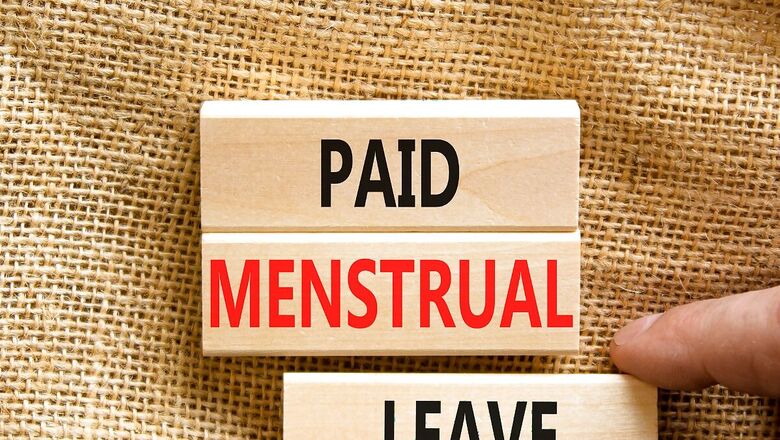
views
Menstrual leave, also known as period leave, became the subject of endless discussion and controversy on social media after the statement by Union Minister of Women and Child Development Smriti Irani. The Menstrual Policy is a work policy that permits women employees to take time off when they are uncomfortable or in pain during their menstrual cycle.
Here’s a look at menstrual leave policies in other countries:
Spain
Spain became the first nation in Europe to offer its female citizens menstruation leaves. It passed the bill in February 2023. According to the policy, women who experience severe menstruation symptoms, such as intense cramps, nausea, vertigo, or vomiting, have the option to take up to three days of menstrual leave every cycle. However, as the paid leave is funded by Spain’s public social security system, employees require a medical note for each application.
Japan
Article 68 of the Labour Standards Law of Japan, which was approved in 1947, states: “A woman for whom work during menstrual periods would be difficult has requested leave, the employer shall not employ such woman on days of the menstrual period”.
Even though the law requires companies to allow women to take leave, it does not mandate them to provide paid leave or extra pay for women who choose to work during menstruation.
Indonesia
The Indonesian government introduced the menstrual leave policy in 1948 and restructured it in 2003. The policy states that female employees who are having menstrual pain are not obliged to work during the first two days of their menstrual cycle.
However, the provision is discretionary. Many employers only permit one day of menstruation leave each month, and some do not grant any leave at all. This could be due to their ignorance of the law or deliberate contempt for it.
South Korea
Article 73 of the Labor Law of Korea states: “An employer shall, if requested by a female worker, grant her one day’s menstruation leave per month.”
The employer is not required to provide an allowance for the use of the leave, if requested, by the amended legislation, which now recognizes menstrual time as unpaid leave.
If both parties agree differently in the labour contract, rules of employment, or collective agreement, the allowance will still be paid.
Menstruation leave is now regarded as unpaid, however, it is legally allowed to be treated as paid to avoid having an impact on attendance when determining the number of contractual working days and attendance rate for paid holidays, yearly leave, etc.
Zambia
The Menstrual Leave Law of Zambia, known as ‘Mother’s Day’, enables women to take one day off work per month freely. If the female employee fails to get leave, she is entitled to file a lawsuit against her employer.
Taiwan
“Female employees have the right to request a day off every month for period leave at half their regular wage,” according to Article 14 of Taiwan’s gender equality in employment law. However, more than these three days leave in the same year are considered as sick leave.
Vietnam
Female workers in Vietnam are entitled to a three-day menstrual leave per month, along with a 30-minute break every day during menstruation. Additional compensation is paid to women who choose not to take menstruation leave.
In India, Bihar is the only state where menstrual leave is applicable. In 1992, after months of struggle, the Lalu Prasad Yadav government granted two days’ period leave per month to government employees up to the age of 45.
In 2017, MP Ninong Ering from Arunachal Pradesh introduced ‘The Menstruation Benefits Bill, 2017’ in Parliament. Women employed by public and private establishments that were registered with the government would have been entitled to 24 days of leave annually, or two days of period leave each month, under the provisions of the bill. It was, however, withdrawn later.
Some private employers in India do offer period leave. Zomato offers 10-days annually, Chingari allows for 2 days paid leave per month, Swiggy has 2-days paid monthly leave and Byju’s offers 12 days annually.




















Comments
0 comment